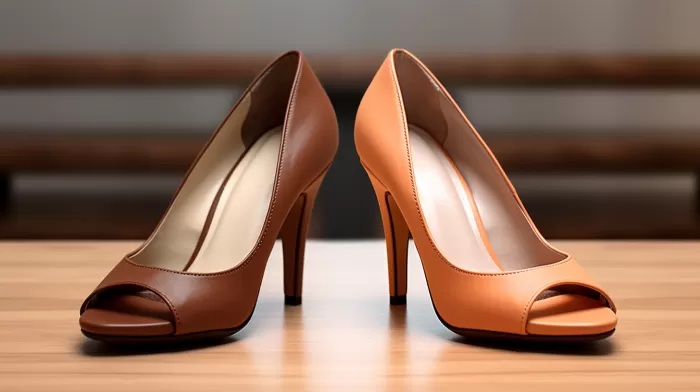Nobody wants to deal with the frustrating and uncomfortable effects of soreness, fatigue, numbness, and arthritis. All of these issues can be caused by simply wearing the wrong shoes. The good news is that the solution is pretty straightforward: choosing the right footwear can vastly reduce the chance of these problems occurring.
Believe it or not, according to a study conducted at Ningbo University in Zhejiang, China, wearing high heels can not only be detrimental to your feet but can have long-term negative effects on your overall health.
The Dangers of High Heels
We’ve all heard about how wearing high heels can be uncomfortable, but the Chinese researchers found some more serious consequences to this kind of footwear. They discovered that 90% of people who regularly wear high heels suffer from bunions, tiredness, sore legs, and a lack of feeling in their extremities. Although high heels are designed to shorten your stride and make you look more graceful, the benefits come with some painful consequences.
The scientists also conducted tests to see what happens when you run in high heels. They found that these shoes increase the range of motion in your knee abduction-adduction and hip flexion-extension, which means that they add harmful loading forces to your knees. In addition to this, high heels reduce your ankle movement, increasing the chances of a sprain. The higher your heels are, the greater the risk of injury.
Moreover, the study also showed that wearing high heels can eventually lead to osteoarthritis in your knees. The fact that heels cause greater motion in your knees, along with increased pressure, only serves to heighten the risk of developing arthritis.
How to Prevent Arthritis and Other Issues
To avoid these injuries and health issues, it’s best to either never wear high heels or wear them sparingly on special occasions. And remember that you should never run in high heels, as the Chinese research found that running could make the harmful effects even worse. The key is to choose the right footwear that provides the proper support and protection for your feet, knees, and overall health.
Optimize Your Foot Health
Preventing arthritis, fatigue, soreness, and other issues doesn’t have to come at the expense of style or fashion. There are numerous alternatives to high heels that can help keep your feet healthy and happy. Here are a few tips to guide you:
- Choose shoes with proper arch support: Look for shoes with good arch support, which is essential for proper foot alignment and overall comfort. A lack of arch support may lead to plantar fasciitis, a painful condition affecting the tissue on the bottom of your feet.
-
Opt for lower heels or wedges: If you can’t resist wearing heels, choose lower options or wedges, which can offer better support, balance, and stability than high stiletto heels.
-
Invest in quality: While it may be tempting to save money on cheaper shoes, consider the potential health consequences of wearing poorly-made footwear. Put your health first and invest in high-quality shoes that will last longer and provide better support.
-
Get your feet properly measured: Many people wear shoes that are either too small or too large, both of which can cause various foot issues. Have your feet properly measured at a shoe store and ensure that you wear the correct size.
-
Prioritize comfort over style: Although it’s appealing to wear elegant, fashionable shoes, prioritize your health by opting for comfortable, supportive footwear that can prevent numerous foot and joint problems.
Understanding the dangers and long-term effects of wearing the wrong shoes, particularly high heels, can make a significant difference in your overall foot health and comfort. Making the switch to better footwear not only reduces the risk of arthritis but also creates a more enjoyable and pain-free experience for your feet and legs. So the next time you’re shopping for shoes, prioritize comfort and support over style, and your body will thank you in the long run.



